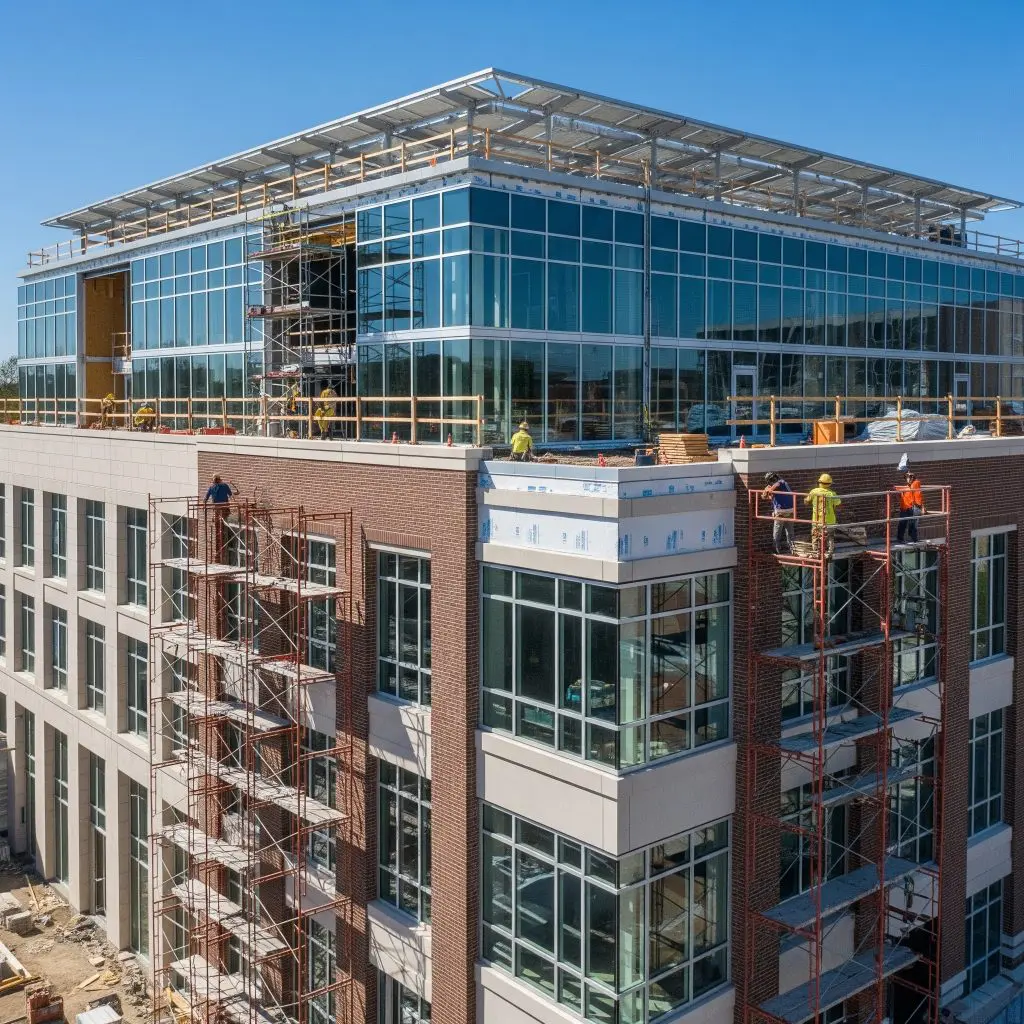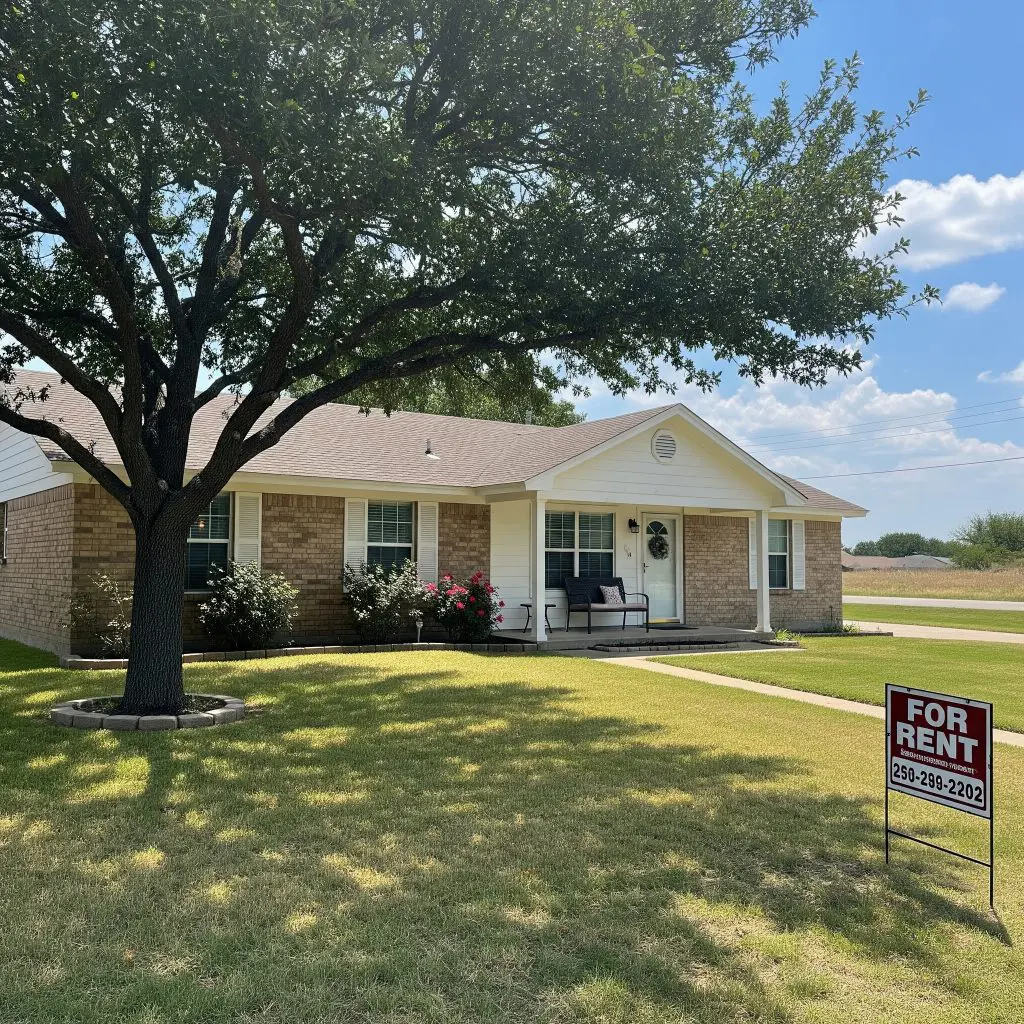Texas Investor’s Guide: Pros and Cons of Investing in Commercial Real Estate
Dallas – October 1, 2025: For real estate investors in Texas, one of the most important questions is whether investing in commercial real estate (CRE) is worth the effort and risk. From Dallas’ bustling office corridors (75201, 75204), to Houston’s medical and energy-driven economy (77002, 77056), and Austin’s rapidly growing tech market (78701, 78704), commercial real estate presents unique opportunities—but also challenges.
This guide provides a balanced look at the pros and cons of investing in commercial real estate, with insights specific to Texas markets. It also outlines how strategic financing through GHC Funding—including DSCR loans, SBA 7a and 504 loans, and bridge loans—empowers investors to maximize returns while mitigating risks.
Texas Investor’s Guide
- Pros of Investing in Commercial Real Estate
- Cons of Investing in Commercial Real Estate
- Current Market Insights for Texas Investors
- Texas Geo-Targeted Investment Opportunities
- External Resources for Texas Investors
- Q&A: Pros and Cons of Investing in Commercial Real Estate
- Why GHC Funding is the Go-To Lender for Texas CRE Investors
- Final Thoughts
- Call to Action
- Get a Commercial Real Estate loan quote in Texas.
Pros of Investing in Commercial Real Estate
1. Higher Income Potential
Commercial properties—such as office buildings, retail centers, and industrial warehouses—often yield higher rents than residential properties. In Dallas, Class A office rents average $35–$45 per square foot annually, significantly above residential rental equivalents.
2. Diversification of Income
Multi-tenant retail and office spaces spread risk across multiple tenants. Even if one tenant vacates, others sustain property income.
3. Appreciation Opportunities
CRE in growing Texas markets like Austin and Houston benefits from strong economic fundamentals and population growth, driving long-term appreciation.
4. Professional Tenants
Business tenants typically maintain properties better than residential tenants, often investing in tenant improvements that increase property value.
5. Flexible Financing Options
Commercial investors can leverage GHC Funding for DSCR loans, SBA loans, and bridge financing, making acquisitions and refinances more accessible.

Cons of Investing in Commercial Real Estate
1. High Entry Costs
CRE requires significant capital, with down payments typically starting at 20–30%. A $5 million office building in Houston may require at least $1 million in equity.
2. Market Sensitivity
Commercial real estate is more sensitive to economic cycles. During downturns, office and retail spaces may face higher vacancy rates than multifamily properties.
3. Management Complexity
Managing multiple tenants with different lease agreements, CAM (common area maintenance) charges, and buildouts requires sophisticated systems.
4. Longer Vacancies
Vacancies in CRE can last months or even years, especially for specialized properties.
5. Financing Challenges
Traditional lenders require strong financials, higher DSCR ratios, and extensive documentation. This is where GHC Funding provides an advantage with more flexible underwriting.
Mastering the SBA 504 Loan: Your Essential Guide Quiz

Test your knowledge on the SBA's most popular loan program, designed to fuel business growth and expansion.
Current Market Insights for Texas Investors
Interest Rates (as of October 2025):
- DSCR Loans: 7.5% – 8.75% (income-based qualification, no personal income check)
- Bridge Loans: 9% – 11.5% (short-term capital for acquisition or rehab)
- SBA 7a Loans: Prime + 2.75% (~11.25%)
- SBA 504 Loans: 6.75% – 7.5% fixed long-term
DSCR Loan Requirements:
- No tax returns required – qualification based on rental income
- LTV up to 75–80%
- Minimum DSCR: 1.20
- Eligible properties: office, retail, industrial, mixed-use, and multifamily (2–8 units)
- Entities: LLCs, corporations, and partnerships accepted
DSCR Loan IQ Quiz!

Test your knowledge of Debt Service Coverage Ratio (DSCR) loans!
Texas Geo-Targeted Investment Opportunities
- Dallas (75201, 75204): High demand for mixed-use and office spaces in Uptown and Downtown, fueled by corporate relocations.
- Houston (77002, 77056): Energy, healthcare, and logistics sectors drive industrial and office growth.
- Austin (78701, 78704): Tech boom supports office and co-working demand, though competition is increasing.
- San Antonio (78205, 78216): Affordable CRE opportunities with strong military and tourism-driven tenants.
- Fort Worth (76102): Expanding logistics hubs create demand for industrial warehouses.
External Resources for Texas Investors
- Texas Real Estate Commission (TREC) – Licensing and compliance
- Texas Association of Realtors – Statewide market trends
- Dallas-Fort Worth Real Estate Investment Association – Networking and education for CRE investors
- Houston Association of Realtors – Market data and resources
- Texas Comptroller of Public Accounts – Property tax insights and state economic reports
Quiz on Texas Rental Property Laws

Test your knowledge of the regulations and legal considerations for managing a Texas rental property. From security deposits to eviction notices, this quiz will help you understand the key responsibilities of landlords in the Lone Star State.
Q&A: Pros and Cons of Investing in Commercial Real Estate
Q1: Is commercial real estate riskier than residential?
A: Yes, CRE is more sensitive to economic cycles, but it offers higher returns and longer leases.
Q2: Can I finance a commercial property without personal income verification?
A: Yes, GHC Funding offers DSCR loans based solely on property cash flow.
Q3: How much down payment is needed for Texas CRE?
A: Typically 20–30%, though SBA 504 loans can reduce equity requirements.
Q4: Are CRE investments suitable for out-of-state investors?
A: Yes—particularly in Texas, where population and job growth create strong rental demand. Remote investors should consider local management teams.
Q5: What’s the average DSCR requirement?
A: Most lenders, including GHC Funding, require 1.20 or higher for CRE.
Q6: What CRE asset class is strongest in Texas right now?
A: Industrial and logistics properties in Dallas-Fort Worth and Houston show strong long-term fundamentals.
Q7: How does GHC Funding differ from traditional banks?
A: GHC Funding offers faster closings, flexible underwriting, and broader property eligibility.
Why GHC Funding is the Go-To Lender for Texas CRE Investors
- Flexible Underwriting: DSCR-based loans—no W-2s, tax returns, or personal DTI checks.
- Speed: Approvals and closings within 30–45 days.
- Local Knowledge: Expertise in Texas markets from Houston to Austin.
- Comprehensive Products: DSCR, SBA 7a, SBA 504, bridge loans, and alternative financing under one roof.
Test Your Texas Investor Savvy!

Texas, the Lone Star State, is a land of vast opportunities, from its booming urban centers to its sprawling energy fields. For real estate investors, Texas offers a dynamic market driven by continuous population growth, diverse industries, and a business-friendly environment. Whether you're considering your first venture into investment properties using no income verification rental property loans for new investors or expanding an existing portfolio, understanding the Texas landscape is invaluable.
Put your knowledge of the Lone Star State to the test with our quick quiz!
Final Thoughts
When weighing the pros and cons of investing in commercial real estate, Texas investors should balance the higher returns and diversification benefits against higher costs and management complexity. For those who structure deals properly and secure financing through GHC Funding, CRE can be a cornerstone of wealth-building in Texas.
Call to Action
👉 Ready to invest in commercial real estate in Texas?
Visit GHC Funding or call 833-572-4327 today to access DSCR loans, SBA financing, bridge loans, and alternative funding tailored for commercial real estate investors.

